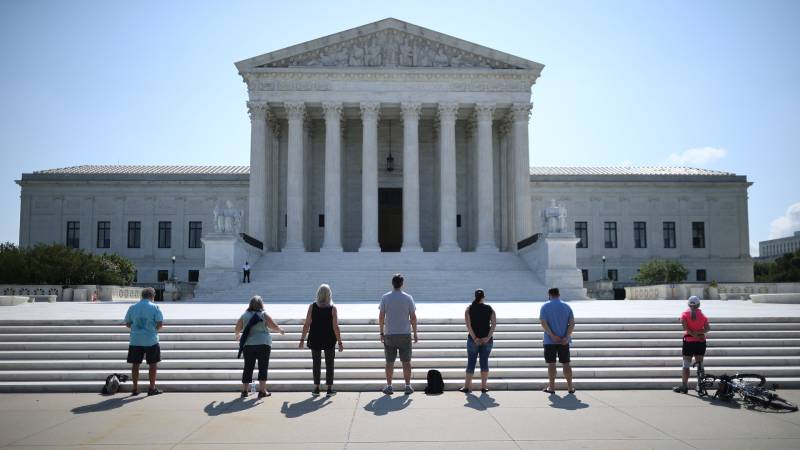President Donald Trump said he will name his nominee to succeed Supreme Court Justice Ruth Bader Ginsburg on Saturday — a little more than a week after the death of the trailblazing feminist jurist. One of the top contenders is Amy Coney Barrett, whose conservative jurisprudence calls into question the future of Roe v. Wade, the landmark 1973 decision that affirmed a woman’s right to choose an abortion. We’ll talk about the likelihood that a conservative majority would overturn Roe and what that would mean for women across the country, particularly those who live in states that already limit abortion access.
Roe v. Wade Under Threat As Conservative Nominee All But Assured Seat on Supreme Court
52:48

Anti-abortion demonstrators pray in front of the U.S. Supreme Court July 08, 2020 in Washington, DC. (Chip Somodevilla/Getty Images)
Guests:
Michele Goodwin, Chancellor's professor and director, Center for Biotechnology & Global Health Policy, UC Irvine School of Law; author, "Policing the Womb: Invisible Women and the Criminalization of Motherhood"
Jennifer Dalven, director, Reproductive Freedom Project, ACLU
Carrie Cwiak, professor of gynecology and obstetrics, Emory University School of Medicine; practicing OB/GYN and abortion provider at several Atlanta-area hospitals
Sponsored